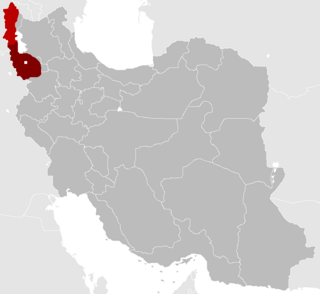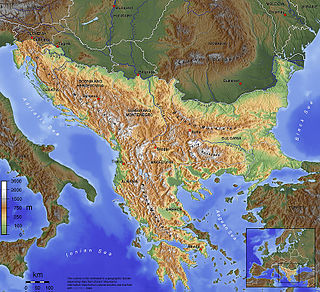
The United Nations General Assembly, UNGA; French: Assemblée générale des Nations unies, AGDNU is one of the six principal organs of the United Nations (UN), serving as its main deliberative, policymaking, and representative organ. Currently in its 79th session, its powers, composition, functions, and procedures are set out in Chapter IV of the United Nations Charter.

United Nations Security Council Resolution 1441 is a United Nations Security Council resolution adopted unanimously by the United Nations Security Council on 8 November 2002, offering Iraq under Saddam Hussein "a final opportunity to comply with its disarmament obligations" that had been set out in several previous resolutions. The United States used it as part of the legal justification for the subsequent US-led invasion of Iraq.
A United Nations General Assembly resolution is a decision or declaration voted on by all member states of the United Nations in the General Assembly.

The United Nations Mission for the Referendum in Western Sahara is the United Nations peacekeeping mission in Western Sahara, established in 1991 under United Nations Security Council Resolution 690 as part of the Settlement Plan, which had paved way for a cease-fire in the conflict between Morocco and the Polisario Front over the contested territory of Western Sahara.

United Nations Security Council Resolution 2 was adopted unanimously on 30 January 1946. The Council urged Iran and the Soviet Union to resolve the crisis caused by the Soviet occupation of Iranian territory.

United Nations Security Council Resolution 3 was adopted on 4 April 1946. The Council acknowledged that Soviet troops occupying Iran were not removed in accordance with the Tri-partite Treaty of 29 January. Further proceedings surrounding the Iranian crisis were deferred until 6 May, when Soviet withdrawal was to be complete.

United Nations Security Council Resolution 4 was adopted on 29 April 1946. The Council condemned Francoist Spain and formed a sub-committee to assess the conflict in the country.

United Nations Security Council Resolution 5 was adopted on 8 May 1946. The Council deferred further proceedings surrounding the Iranian crisis until Iran submitted a complete report on the subject.

United Nations Security Council Resolution 7 was adopted on 26 June 1946. The Council resolved to maintain continuous observation of Francoist Spain and protect international security.

United Nations Security Council Resolution 12 was adopted on 10 December 1946. The Council invited Greece and Yugoslavia to participate in discussions surrounding allegations of British troops interfering in Greece's internal affairs. Albania and Bulgaria were invited to present declarations before the Council.

United Nations Security Council Resolution 15 was adopted unanimously on 19 December 19 1946. The Council established a commission of investigation into the alleged border violations between Greece and Albania, Bulgaria, and Yugoslavia.

United Nations Security Council Resolution 17 was adopted on 10 February 1947. The Council declared that the commission established by Resolution 15 did not have the authority to request the governments of Greece, Albania, Bulgaria, or Yugoslavia to postpone any executions of political prisoners unless the commission believed they could provide testimony helpful to its work.
United Nations Security Council Resolution 27 was adopted on 1 August 1947. The Council called for a ceasefire and a peaceful resolution between the parties from the Netherlands and Indonesia involved in the Indonesian National Revolution.

United Nations Security Council Resolution 34, titled "The Greek Question" and adopted on 15 September 1947, removed disputes between Greece and Albania, Yugoslavia and Bulgaria from the Council's agenda. It further requested the Secretary-General to place all records and documents in the case at the disposal of the General Assembly.
United Nations Security Council Resolution 78, adopted on October 18, 1949, having received and examined the proposals contained in the working document on the implementation of United Nations General Assembly Resolution 192, adopted by the United Nations Commission on Conventional Armaments the Council requested the Secretary-General transmit these proposals and the records of the discussion on this question in the Council and the Commission for Conventional Armaments to the General Assembly.
United Nations Security Council Resolution 284, adopted on July 29, 1970, submitted the following question to the International Court of Justice for an advisory opinion: "What are the legal consequences for States of the continued presence of South Africa in Namibia notwithstanding Security Council resolution 276 (1970)?". The Council requested the Secretary-General transmit the resolution, along with all documents likely to shed light on the question to the Court.
The official languages of the United Nations are the six languages used in United Nations (UN) meetings and in which the UN writes all its official documents.

The Spanish question was the set of geopolitical and diplomatic circumstances that marked the relationship between Spain and the United Nations between 1945 and 1955, centred on the UN's refusal to admit Spain to the organization due to Francoist Spain's sympathy for the Axis powers, defeated in World War II.










